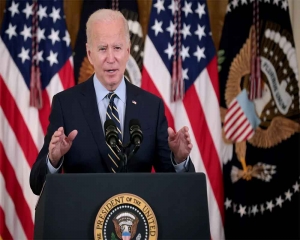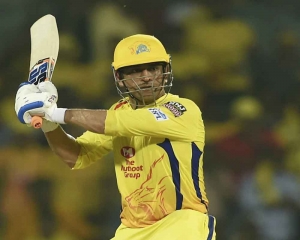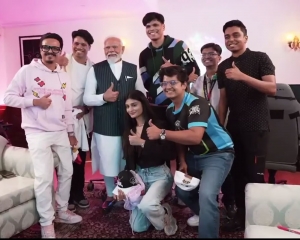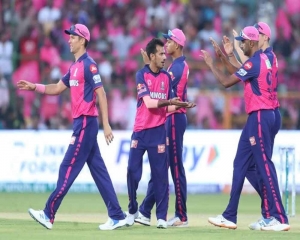The Finance Minister has indicated that a lot of the market rectifications or some of the other structural changes often on the list of economists are well on the cards, as a mandate of 303 makes them possible
The year 2019 will go down in Indian history as a critical juncture that changed the country’s trajectory. With a switch in our direction, it is evident that we’re going to change our eventual destiny. For the first time in 48 years of the country’s political history, India elected a second term, full-majority Government in 2019.
It was also for the first time in the country’s history that Indians voted for a reformist Government, thereby signalling a new dawn in the nation’s politics. The electoral results broke the myth of the citizens voting against reforms, which prevailed in academic discussions for many years. Any analysis of the developments of different events in 2019 cannot be without a detailed discussion on the significance of 303 seats.
The subsequent full majority Government of Prime Minister Narendra Modi comes with the backdrop of improved numbers for the BJP in the Rajya Sabha and a long list of States where the saffron party is currently in power. All of this opens interesting opportunities for some of the long-standing politically-sensitive, yet important economic reforms. More importantly, it gives the BJP the necessary political capital to take tough decisions.
Be it the issue of triple talaq or of Article 370, we see an unflinching commitment by the Government to its manifesto. Especially the so-called ‘core’ agenda of the BJP such as the Uniform Civil Code (UCC), Article 370 and the issue of construction of the Ram Temple. The way things stand, in 2019 at least two of these core promises have been delivered, one by the BJP and the other by the Supreme Court. It is important to recognise the significance of both these achievements, as these were extremely challenging and contentious issues with severe political and social repercussions. The handling of both these issues has been with utmost care and this shows the level of empathy by our executive, judicial and legislative bodies. The Prime Minister’s address after the judgment is extremely important as he welcomed the verdict and gave a call for the creation of a ‘New India’. The theme of ‘New India’ seems to be consistent with Modi’s agenda to build a more inclusive, dynamic and equitable society.
The focus is on creation of equal opportunities to ensure upward mobility in the nation’s economy. The Government has drastically pivoted India’s welfare programmes away from the leaky socialist ones. Smart welfare in the form of Direct Benefit Transfer (DBT) must be viewed as a tool that aims at creating a basic and decent standard of living for all. This is also the year when India initiated one of the boldest corporate tax cuts in its history. In fact, the reductions were one of the largest tax cuts in the 21st century. Their significance is difficult to fathom for many commentators, but the fact that it makes our tax rates competitive amongst other East Asian countries after a really long time, illustrates the importance of the same.
The Finance Minister too indicated that a lot of the market reforms or some of the other structural reforms often on the list of economists are well on the cards, as a mandate of 303 makes them possible. Recall the land ordinance during Modi 1.0, which became a problem because of the lack of numbers in the Rajya Sabha. Now there is no such problem and therefore, critical reforms such as land reforms can become a reality sooner rather than later.
The fact that growth is slower in 2019 is also an important thing that many have ignored. With the slowdown coming early in the term of Modi 2.0, we are likely to see a lot of reforms to address some of the long-standing issues that affect the economy. A bulk of these reforms have become necessary and urgent such as the corporate tax cuts. As it is often said, one should never miss an opportunity for reforms and certainly Modi 2.0 is not a Government to shy away from them. The significance of it all is that as the BJP delivers on its core agenda, Modi has created a new agenda of developing a ‘New India’.
This implies an unflinching commitment towards economic growth and development for the next couple of years, which will likely result in a transformation of the country’s economy and society.
The manifesto of the BJP seems to have become a form of social contract between the party and the people. It is this form of social contract that has enabled the growth of the party across the country, giving it further political capital to fulfil its promises.
It is interesting to also point out that just as the BJP is expanding, old allies like the Shiv Sena have parted ways. The power struggle between the two old partners over the issue of rotational chief ministership and the subsequent falling out have plunged the State into a crisis of governance till the vexed kissa kursi ka (who will rule) Maharashtra is settled.
Clearly, none of the political parties in the country have learnt their lessons from the Karnataka debacle or the unsuccessful Jammu & Kashmir experience, which showed very clearly that unnatural alliances only result in misgovernance and political instability does more damage to institutions over a period, than anything else.
In the future, when fresh elections are held in Maharashtra, the people of the State will definitely ask all these political parties some tough questions. They will ask why their mandate to the saffron alliance was not respected and why governance in Maharashtra was put on hold for many days after the people had given their verdict.
At the end of the day, politics and economics are always intertwined and that is precisely why one needs to watch out and learn vital lessons from such developments.
No matter, what the result of the political games and machinations in Maharashtra, the fact remains that the sooner the reins of the State come into responsible hands, the faster the beleaguered State that has been reeling under a farm and water crisis, can head on the path of economic development.
More importantly, no matter how one looks at 2019, one finds significant political, social and cultural developments that are likely to have significant consequences for the future of the Indian economy. The BJP has an unflinching commitment to its social contract, which is resulting in further consolidation of its power.
With just another month and a half before 2019 ends, nobody knows what more is likely to happen, but one thing is for sure, Indian politics and the country are likely to have transformed into something better by the end of the year.
(The writer is a New Delhi-based public policy researcher)

























